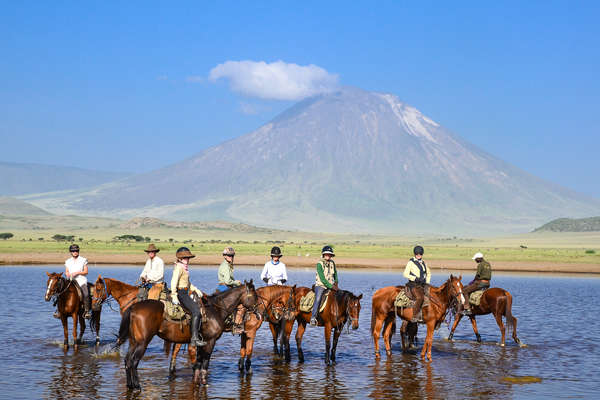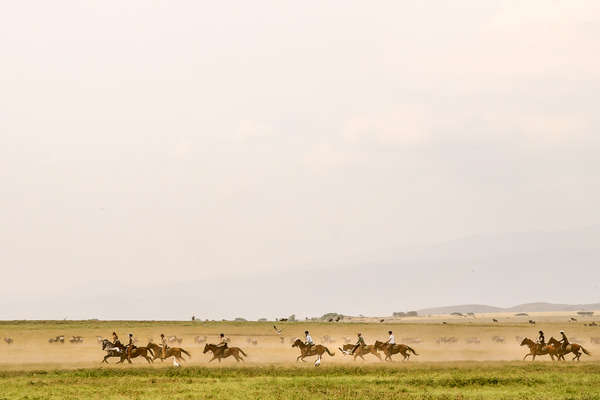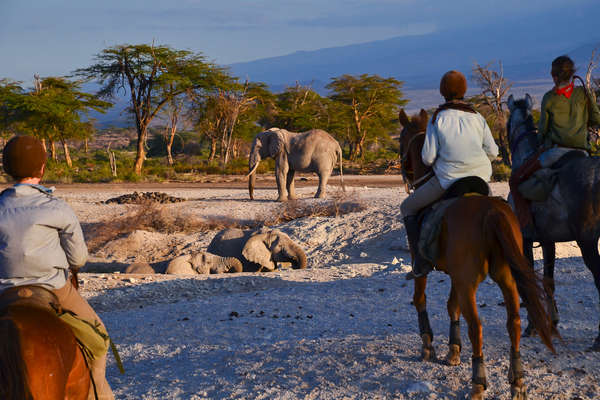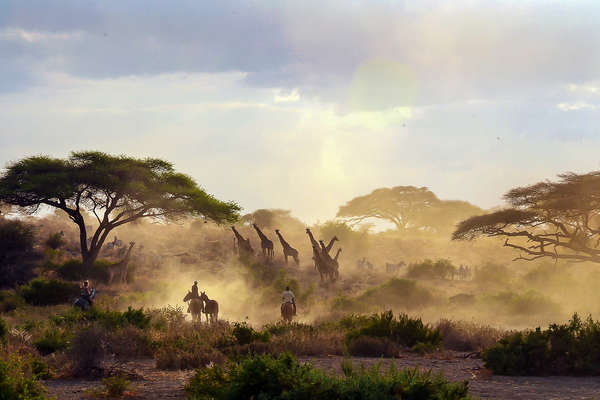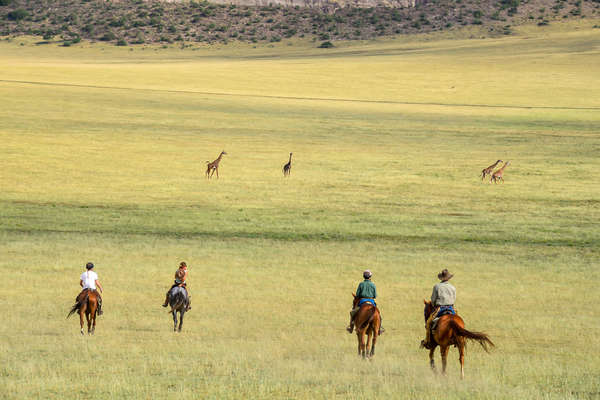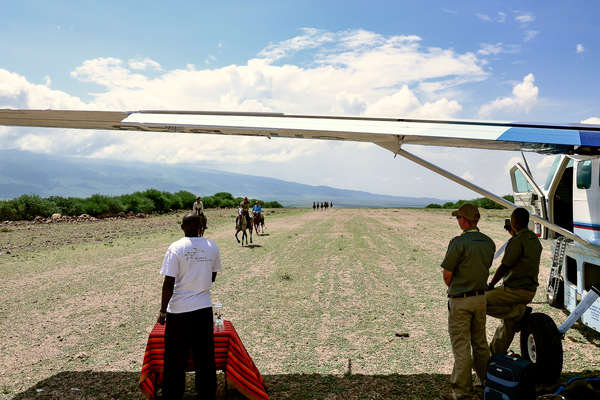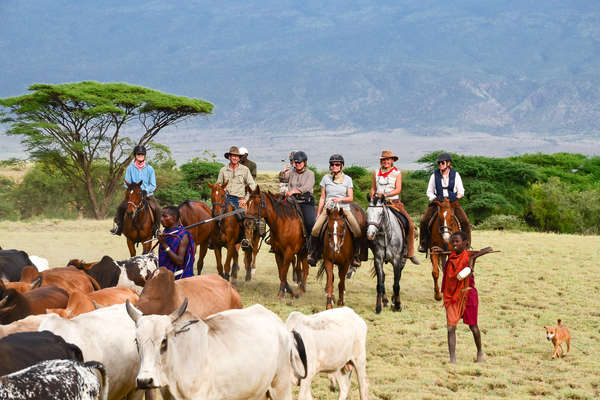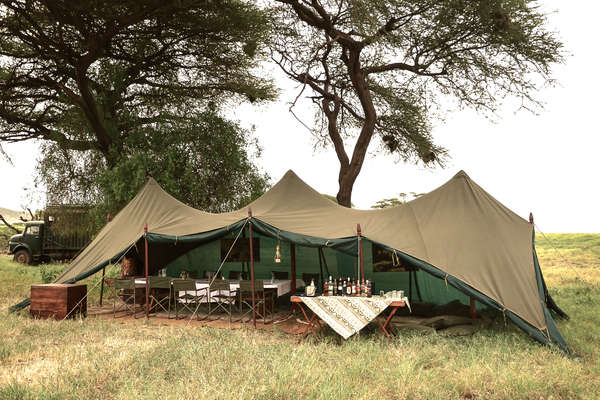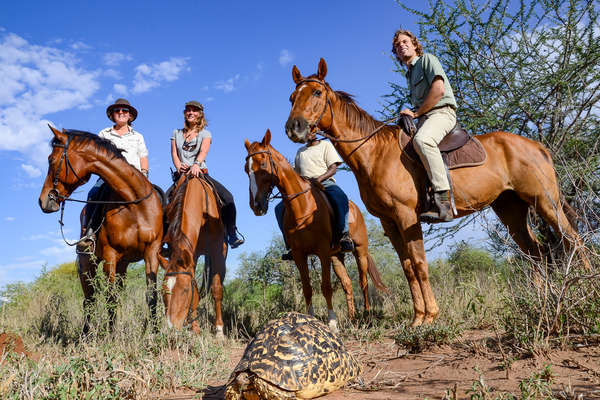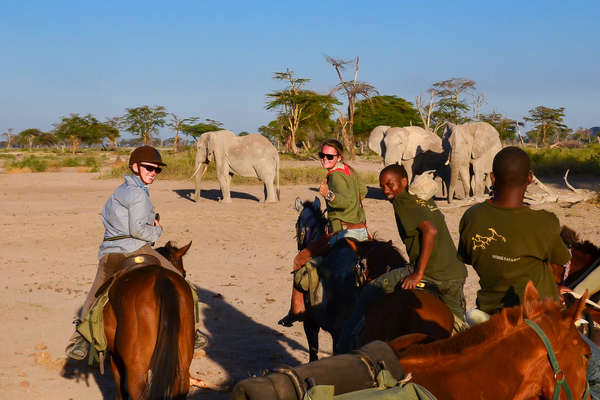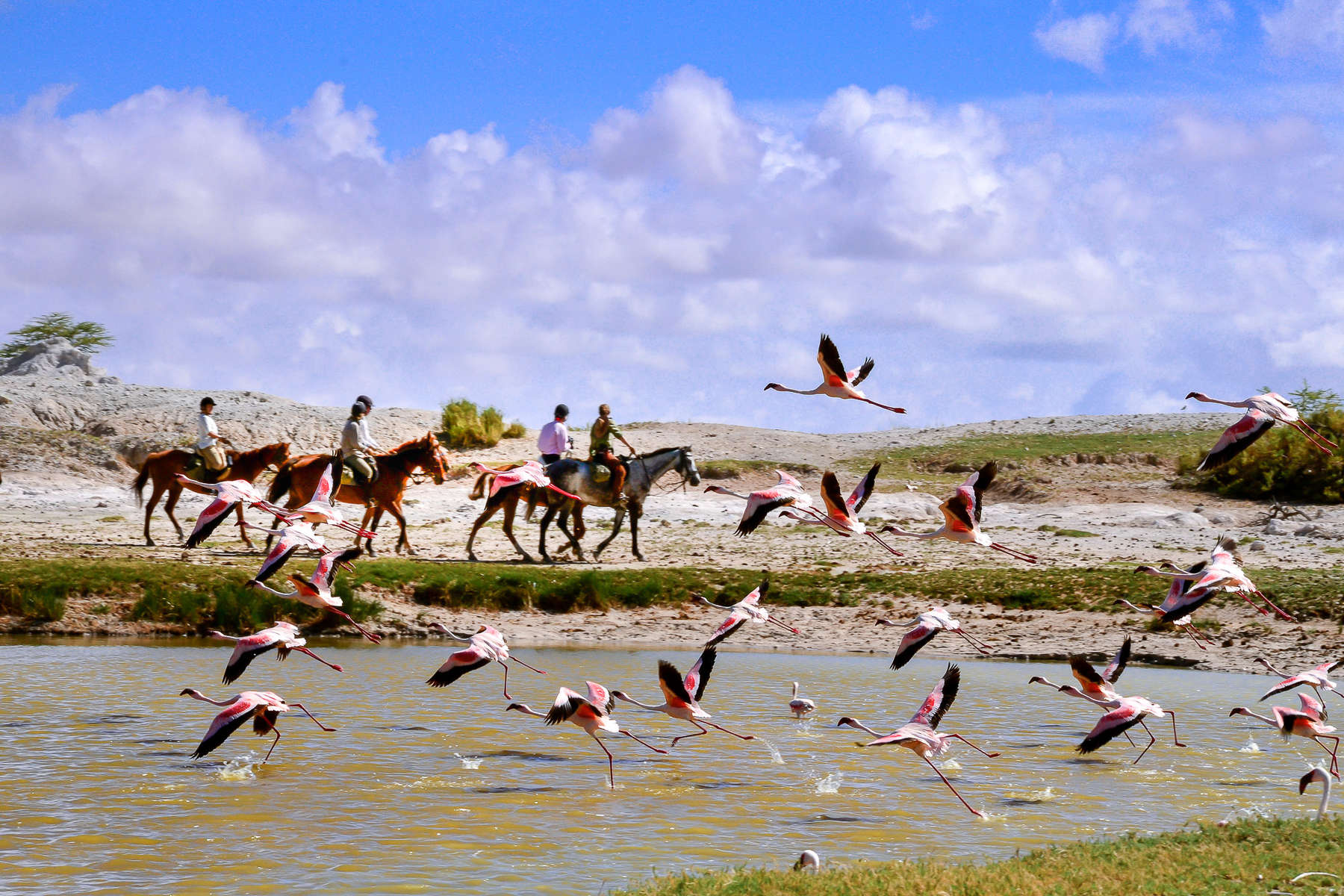
Itinerary
Highlights
- See the only active volcano in Africa - Oldonyo Lengai
- Ride through Maasai villages
- Opportunities for long canters and gallops across open grasslands, perhaps with zebra and wildebeest alongsides
Dates & prices
Price details
- International flights are not included. The domestic flight from Lake Natron to Arusha is included in the price
- Rates are per person, based on two riders sharing a double or twin tent/room.
- There is no single supplement if you are willing to share a room/tent with another guest of the same sex. To guarantee your own room/tent there is a single supplement of $560/€500/£445 for the duration of the safari.
- Groups consist of a minimum of 6 and a maximum of 10 riders, plus guides
- Wildlife Management Fees are included.
- Please note that there is a rider weight limit of 85kgs / 187lb / 13.3st
- If guests are travelling with an extra bag that is not needed on the riding portion of their trip (as space is limited in the tents). Arrangements can be made to store extra bags for a fee of $20 per person.
- For those who are not keen horseriders or not confident enough, options for vehicle safaris and walking safaris can be arranged. Their itinerary will be tailored to individual needs andsample itineraries are available upon request
Please Note
The itinerary may be modified at anytime for security reasons, meteorological or events beyond our control such as blocked roads, rivers in flood, drought, strikes and local holidays. Equus Journeys, our local partners and their local guides will always strive to find the best solution and will alter the itinerary as needed.
The names of the hotels and accommodation are given for information only and depending on availability, they may be modified without notice and replaced by another of a similar standard.
Price includes
Support Team
1 backup guide
Logistic
1 cook
1 assistant cook
1 support vehicle
Inland transports
Airport transfers from/to Kilimanjaro Aiport
Accommodation
1 night in, a private villa 35' from Airport in double room in full board accommodation
Meals
Extra
Wildlife Department and Management area Fees
Price doesn't include
Meals
Transports
Extra
Insurance
Visas and personal purchase
Optional
Accommodation
Equestrian info
Horses
Guide & local team
Out on safari the lead guide is either armed or carries a bullwhip and communicate over radios and cellphones, with a mobile station in each vehicle
Minimum riding ability
Minimum riding ability
Please note that there is a rider weight limit of 85kgs.
Pace
Tacking ability and participation
Trip conditions and Requested experience
Riders who do not ride regularly must get riding fit before joining this safari.
You will meet different cultures and mentalities which requires acceptance of these differences and respect for others.
Equestrian equipment
English or McLellan-like saddles.
We recommend our riders to wear a helmet to the correct standard and you should bring your own to ensure a proper fit. Helmets are not available to borrow.
Travel info
Comfort
Mobile camp (7 nights): Each site is carefully chosen. The tents are spacious and each has a bush toilet and a bucket shower. Comfortable bedding and bath towels are provided.
Meals
Breakfast is traditional and includes fresh fruit juice
Lunch is either sandwiches from the saddle bags or a selection of light dishes produced from the support vehicle in a shady spot.
Dinner is three courses and a mixture of local and international dishes with fresh salads and freshly baked bread.
Drinks are included whilst on safari but payable locally at lodges added on at the beginning/end.
Climate
There are two rainy seasons: the long rains extend from mid-March to early May, with the majority of the rain in April. Evenings can be cool or even cold.
The short rains are from early November to mid December - during this period the rain is not constant but falls in heavy showers during the day.
The hottest months are December to February.
Around Mount Kilimanjaro there is often snowfall overnight in January and February, and freezing cold nights in July and August.
Tips
Packing list
-Equus Journeys strongly recommend that you wear a riding helmet and that you take your own to ensure a correct fit.
-Sunhat for when not riding
- Sunglasses - with a cord attached so they don't fly off when riding
- Buff or bandana
Upper body
- Long sleeved shirts provide protection from the sun and thorns
- T-shirts
- Fleece, jumper or jacket - the evenings can be cold
- Waterproof jacket - the rains can be difficult to foresee and it's better to be prepared
- Casual clothes for the evening
Legs
- Lightweight, comfortable riding trousers or jodhpurs - we recommend riding in them at home before taking them on holiday to ensure they don't rub
- Shorts for lazy lunchtimes
- Casual clothes for the evening
Hands and Feet
- Comfortable riding boots. We recommend short boots with half chaps but you may wish to take long chaps to protect against thorns. We don't recommend taking your favourite long leather boots in case they get damaged
- Sandals, flip-flops or trainers for moving around the lodge and camp
- Gloves - your hands are particularly exposed to the sun whilst riding
Nightwear
Our Recommendations
- Please don't take a hard sided suitcase. Your luggage should be soft sided for easy transportation between camps.
- Wherever possible you should wear neutral colours, such as beige, brown or natural bush colours for riding as bright colours, such as red, yellow or white can startle the wildlife and they will see you long before you've seen them
- We recommend travelling in your riding boots and carrying your hat and some riding clothes in your hand luggage - then if your luggage goes astray you are still able to ride!
Other useful items
- Waterbottle to keep in the saddlebags
- Swimsuit - for the Lake Natron ride
- Towel. A camping towel will both dry quicker and pack lighter
- Binoculars for viewing game
- Camera and high capacity memory card. Spare battery
- Bumbag for carrying your camera and small items whilst riding
- Headtorch or small torch for moving around camp at night
In your luggage
- Any liquids, such as shampoo, moisturiser, deodorant unless they are less than 100ml and all bottles can fit in a small, clear, plastic ziplock bag
In your hand luggage
- Any valuables, such as your camera, ipod, ipad etc.
- Your riding hat
Medical kit
- Sunscreen and lip balm - must be high factor
- Insect repellent, preferably containing deet
- Any medication you regularly take
- Blister plasters in case of any rubs
- Antiseptic cream, plasters, aspirin, anti-histamine, insect-bite salve etc...
- Spare prescription glasses/contact lenses
- Ear plugs, particularly if you are a light sleeper
- Anti malarial tablets and Yellow Fever Certificate (check with your doctor)
Sustainable tourism
- Travel light. It's a little known fact, but the lighter you pack, the better for the environment as heavy bags will produce higher emissions (when flying a plane or driving a car!).
- Reduce plastic waste. Take your favorite reusable bottle with you. Avoid single-use bags, cups, or straws.
- Preserve nature. Always take your rubbish with you during the ride and recycle them. Leave all the flowers or plants as you found them, and never get too close when observing wildlife. Make sure to use eco-friendly products such as body wash or laundry detergent (if camping) to protect both your skin and the environment.
- Choose your experiences carefully. Respect animal life by not participating in any activities that abuse wild animals (shows, elephant rides, etc.).
- Support local populations. Buy local handicrafts, be respectful of customs, and learn about the culture of local communities.
- Share! Raise awareness among your family and friends about sustainable tourism.
Did you know?
Did you know?
Lake Natron is a salt and soda lake in northern Tanzania which is characterized by its rich red colouring. The colour of the lake is created during high levels of evaporation - as the water evaporates it leaves behind natron (sodium carbonate decahydrate) and trona (sodium sesquicarbonate dihydrate) creating a highly alkaline solution in which salt-loving micro-organisms thrive. Some of these oganisms include a cyanobacteria which photosynthesises its own food, similar to plants, but rather than the plant's green colouring, it's photosynthesizing pigment is red. This produces deep reds in the open water of the lake and oranges in the shallower parts of the lake.
This salty, hot environment makes most of the lake inhospitable, however, 2.5 million lesser flamingo depend on it. They feed on Spirulina - a blue-green algae with red pigments - which also thrives in alkaline waters. It's the red pigment in this algae that gives the flamingoes their pink colouring.
Lake Natron hosts the largest single flock of these flamingoes in East Africa and you should be lucky enough to see them on this fantastic horseback trail ride in Tanzania.

